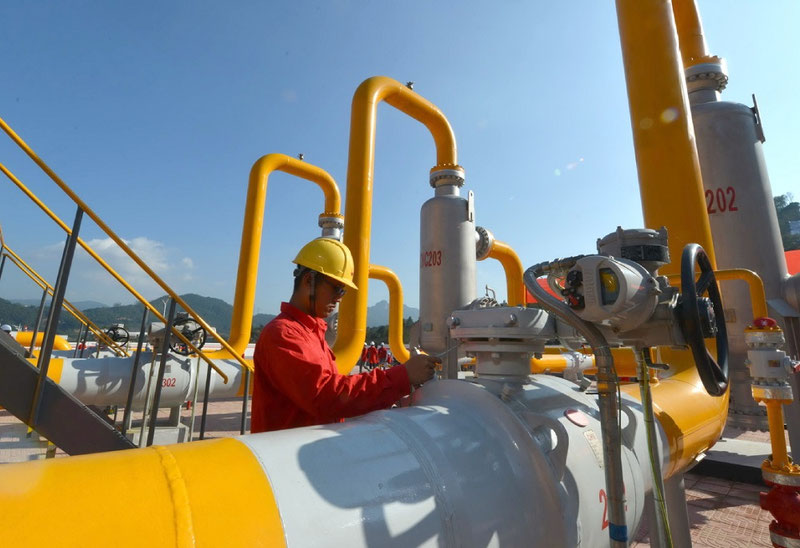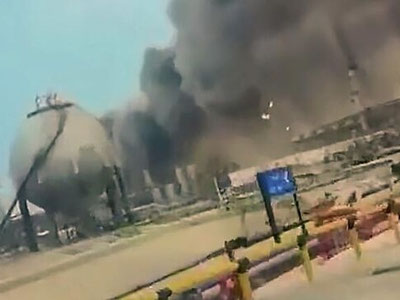China’s deepening economic entanglements in Central Asia have transformed the region’s geopolitical and economic landscape over the past decade. While Beijing's strategic investments—particularly in energy infrastructure—are often hailed as milestones of modernization and integration, they have simultaneously led to rising tensions among host nations.
The inauguration of the Turkmenistan-China natural gas pipeline in 2009 was a watershed moment for Central Asia, symbolizing the acceleration of Chinese influence. Spanning 1,833 kilometers through Uzbekistan and Kazakhstan, the pipeline was not only a remarkable feat of engineering but also a harbinger of China's growing dominance in the region’s energy sector. By 2010, Beijing had cemented its position as Central Asia’s primary trading partner, fueling both economic expansion and mounting concerns about sovereignty and dependency.
Despite the economic interdependence between Turkmenistan and China, frictions have emerged, underscoring the complexities of this partnership. In the second week of May, Turkmenistan’s State Migration Services detained 25 engineers from the China National Petroleum Corporation (CNPC) in the coastal areas of the Balkan province. These engineers were found traveling on fraudulent documents bearing the name of DragonOil Company, enabling them to access projects managed by smaller firms in the offshore oil sector. Their detention followed a formal complaint from DragonOil regarding the unauthorized use of its credentials by Chinese nationals to inspect operational sites when they had work visas only for CNPC projects. State Migration Services of Turkmenistan detained these Chinese engineers and they were subsequently deported. Additionally, a senior Chinese official from Caspian Drilling, a small firm operating in Balkan province, was expelled for allegedly assisting in the fabrication of false DragonOil documents.
Following this incident, Turkmenistan's President, Serdar Berdimuhamedov, directed the state-owned TurkmenNebit (Turkmen Oil) to impose stricter limitations on Chinese access to offshore projects in the Caspian Sea, specifically within the Balkan province. He further instructed the chairpersons of TurkmenNebit and TurkmenGaz (Turkmen Gas) to obtain his explicit approval before initiating any new collaborations with CNPC. As a result, Turkmen authorities have confined CNPC's role within the country to gas exploration activities exclusively.
In response to the security breach, the State Migration Services mandated that all companies operating in Turkmenistan seek prior authorization for the movement of engineers and officials beyond their designated project sites. The migration department has halted the issuance of new visas for Chinese engineers aiming to work on projects in the Balkan province. Unofficially, businesses within the province’s oil sector have been advised against hiring Chinese engineers and technicians.
Currently, CNPC does not have any active projects in the Balkan province, though it continues efforts to secure an oil field contract in the region. Previously, CNPC’s top executives visited Ashgabat for discussions with Gurbanguly Berdimuhamedov, Chairman of Turkmenistan’s Halk Maslahaty (People’s Council), regarding the company’s expansion into oil exploration in the Caspian Sea. However, Berdimuhamedov emphasized that CNPC’s operations should remain focused solely on gas fields and prioritizing the construction of Line-D for the China-Turkmenistan pipeline.
Beyond Turkmenistan, concerns about China’s economic practices reverberate throughout Central Asia. Beijing’s engagement follows a familiar pattern observed in Africa and Latin America—disregard for regulatory compliance and operational integrity when its companies engage in projects within a host country along with large-scale resource extraction, infrastructure projects, and labor imports—often with minimal regard for local industry. While Chinese investments provide much-needed capital, several countries have scrutinized Chinese companies over issues such as environmental violations, opaque business dealings, and disputes over contract terms.
The International Crisis Group has highlighted China's lack of engagement with local communities, preferring direct negotiations with political elites and influential power brokers. This disconnect has fueled discontent, particularly in Kazakhstan, where Chinese workers have described the work environment as hostile due to deep-seated prejudices.
Turkmenistan exemplifies the paradox faced by many Central Asian nations—substantial economic reliance on China coupled with concerns over sovereignty. Over two-thirds of Turkmenistan’s gas exports flow to China, leaving the nation susceptible to market fluctuations and external pressures. This vulnerability was starkly exposed in January 2023 when harsh weather conditions halted gas exports, demonstrating the risks of overdependence on a single buyer. Furthermore, the perception of instability discourages Western investors from diversifying Turkmenistan’s energy market.
China’s increasing footprint in Central Asia is a double-edged sword. While Beijing’s investments provide critical infrastructure and economic opportunities, they also bring challenges ranging from strained diplomatic relations to the erosion of local industries.
The recent Turkmenistan incident underscores the complex dynamics of power, dependency, and sovereignty in the region. As China continues to expand its reach, Central Asian nations must navigate a delicate balance—leveraging economic opportunities while safeguarding their long-term autonomy.
The reported use of fraudulent documents by CNPC engineers in Turkmenistan suggests an attempt to bypass established protocols, which led to swift government action, including deportations and tighter restrictions on Chinese involvement in the Balkan province's oil sector. Turkmen authorities have now reinforced oversight mechanisms to ensure stricter adherence to national regulations. Incidents like these can strain diplomatic and economic relations, prompting host nations to reassess their policies regarding foreign corporate participation.






